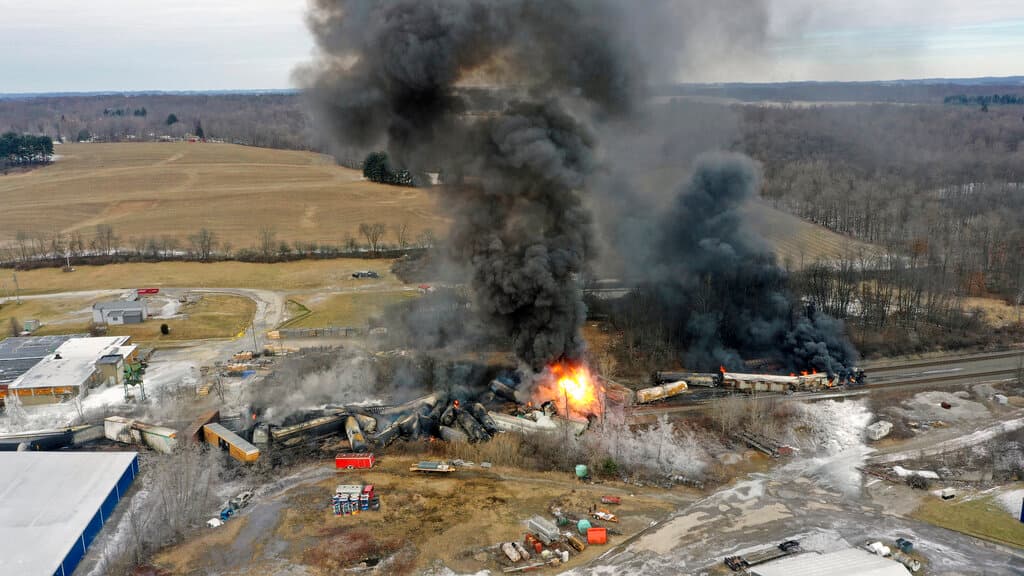Biden To Visit East Palestine Train Derailment One Year After Fiery Disaster
The White House announcement comes days after the Sun made a trip to East Palestine, where residents expressed mixed feelings about the upcoming anniversary on February 3.

President Biden will head to East Palestine, Ohio in February, a year after a Northern Suffolk train derailment that unleashed hazardous chemicals into the small town and surrounding areas.
Please check your email.
A verification code has been sent to
Didn't get a code? Click to resend.
To continue reading, please select:
Enter your email to read for FREE
Get 1 FREE article
Join the Sun for a PENNY A DAY
$0.01/day for 60 days
Cancel anytime
100% ad free experience
Unlimited article and commenting access
Full annual dues ($120) billed after 60 days

